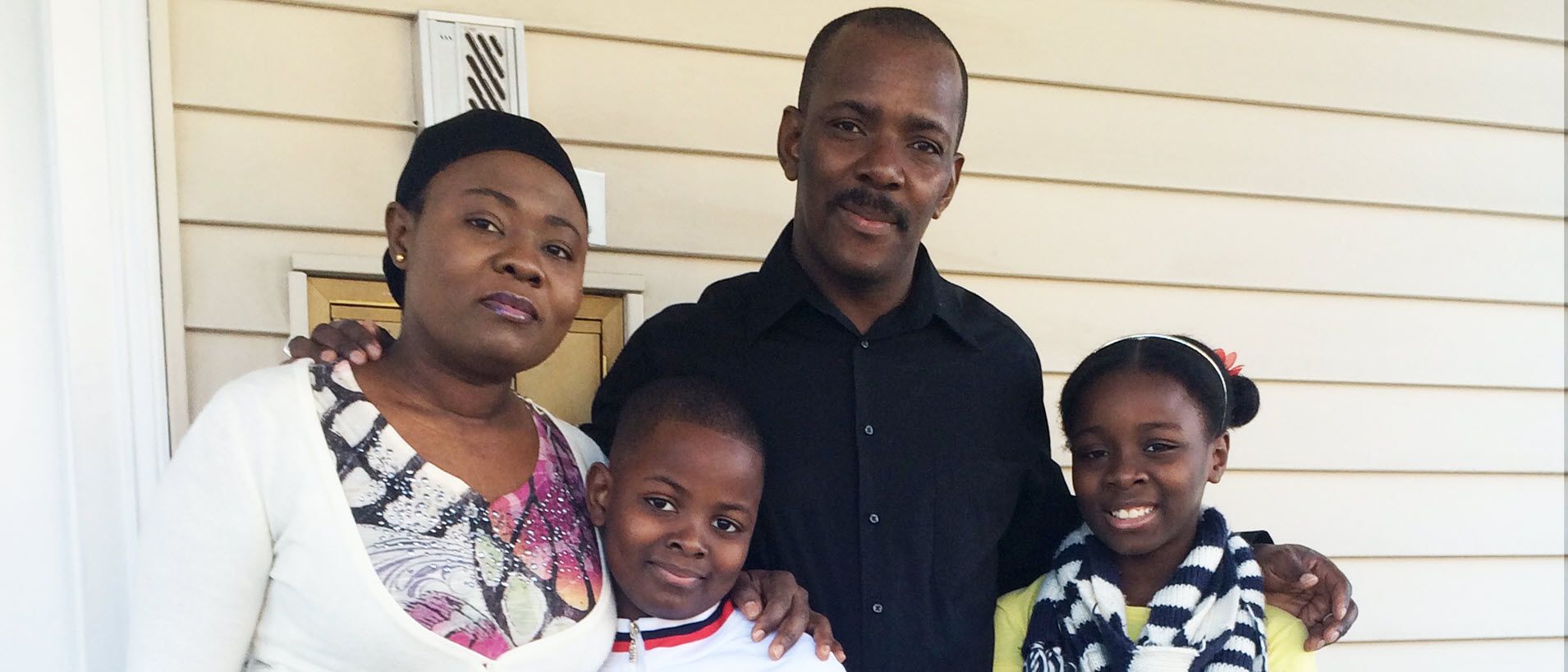Barbara Gaul has been with Hildebrand Family Self-Help Center, Inc. since July of 2012, but that wasn’t her first experience in the realm of homelessness. “I always worked in a school, but always had a second job,” she said, working at Caspar, Inc., a homeless shelter for individuals with drug and alcohol addictions, for 5 years before working at Heading Home, Inc. née Shelter, Inc. and eventually joining Hildebrand. As her reasons for making the leap from the Boston Public School system to the homeless sector, “I wanted to make a difference.”
Caspar, Inc. was a great fit for Barbara at first, because like the individuals there, she had experienced addiction and wanted to help others, to give them the second chance she was given. But the real reason she moved on to Heading Home and eventually Hildebrand was because of her roots, working in Boston Public schools. “I’m here to help the mothers and fathers,” said Barbara, “because I want to help the kids and it starts with them [the parents].”
It all started when she went to Christmas in the City, “I teared up seeing how many families there are who need help.” So three days a week, Barbara gives back at Hildebrand, helping her clients do research for daycare, housing, school (higher-ed, HI-SET, ESL, vocational training, etc.), transportation, and employment, although she said most of the women living at Bishop Allen are employed at the moment, as well as provide emotional support. “We blame the economy,” she said, “but these young families don’t know how to raise a family because they didn’t have parents who taught them how.”
Working in a congregate living program is a much different experience than being a case manager because for 8 or more hours a day, the staff is an active part of the lives of those who live there; staff and clients get to know each other on a much more intimate level. If someone is having a bad day, they go to “Ms. Barbara” and the other residential staff to help them get through it.
Two clients, in particular, stand out to Barbara as people she’d deem a success. Royce* came to Hildebrand with his girlfriend and their infant son, lovingly deemed little Royce*. Unfortunately, his girlfriend left Royce at Hildebrand, alone with their child. Royce himself was nearly a child at 19 years old, raising his son on his own. Shelter was not easy for Royce at first; he had never learned to properly take care of himself because his mother was a drug addict. In shelter, Royce was reprimanded for not properly cleaning, missing the baseboards and behind the toilet. Furthermore, he did not know how to cook or even shop for groceries. He had been all but abandoned by his mother and then by his child’s mother.
Fortunately, Royce had help from Barbara and the other residential assistants at Bishop Allen, who took the time to teach him how to cook and clean, and one even took him though Market Basket and showed him how to grocery shop. While he had trouble with household tasks, he was very good father. He took little Royce to daycare in Dorchester every day. He had dropped out of school in his junior year, but with help he enrolled at Cambridge Rindge and Latin and was even able to get little Royce into daycare there all on his own.
While in school full-time and raising his son on his own, he diligently searched for housing on his own. He received section 8 housing and got an apartment in Dorchester in April of 2013. He was able to finish out the year at Rindge despite moving.
What makes his achievements so great is that he suffered from a brain tumor, which was drained frequently, and he suffered from depression. His mother used him to feed her habit. Royce had little, but he cared for his mother and thought she would change so he gave to her what little he had. With Barbara’s help, he learned to let go of his mother in order to take better care of his son. But it often left him sad, unsure of whether he could continue on. But he did. Barbara recalls, “He got what he got because he wanted to get it.” Royce wanted to provide a better life for his son than he had.
Royce was in shelter for a little over a year before he found housing. And today, he’s employed and still has his apartment in Dorchester with his son. Every December, around his birthday, Royce comes to visit Barbara at Bishop Allen. He considers her family for all she taught him. He’ll be 23 this year. He has overcome so much, thanks to his hard work and a little help from Hildebrand.
Drita, a 22 year old single mother of two, came to Hildebrand to escape domestic violence. Originally from Albania, Drita was married in the United States where she gave birth to their two boys. Unfortunately, her husband’s abuse led her to flee the marriage. A month after coming to Hildebrand, her passport expired – which became a huge obstacle for her to move on and gain stability in her life. With the help of Barbara, her two boys received childcare. The younger, Benik, went to the Salvation Army while the older, Endrit*, enrolled in the elementary school that Barbara worked in.
Because her passport expired, “[Drita] was just a number.” She tried to get into Empire Beauty School, but was denied because she did not have a picture ID. She was offered a job, but because her ID had expired, the offer was revoked. She tried to open a bank account at Santander Bank, but was initially denied, again because she lacked picture identification. However, with the help of Barbara’s diligence, Drita was able to open a savings account.
Drita moved into scattered site shelter before attaining section 8 housing in Salem. Barbara was proud of Drita even before she moved to Salem because she was the very definition of a mother. She took them to the Cambridge Public Library after school and was able to travel using public transportation in spite of her language barrier. Drita kept in touch with Barbara for about a year after she moved to Salem. When last they spoke, Drita was divorced and had a renewed passport and green card, and she was enrolled at Bunker Hill Community College.
“It’s called ‘self-help.’ They can stand on their own two feet, but we help them get there. But how do we help them when they are gone, what do we tell them?” Barbara asked. Once clients move beyond shelter, case managers work with them for a year to help them maintain self-sufficiency. But it becomes a different, much more emotional experience for clients and residential staff alike when clients leave the congregate living programs. The clients and residential staff alike want their stories to end in success.
*Names have been changed to protect the identities of our clients.









